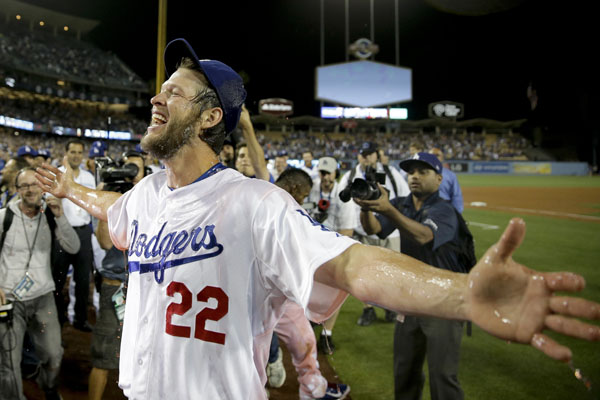LOS ANGELES—If it wasn’t already evident, it is now. The Los Angeles Dodgers face stiff competition from the Houston Astros in the 2017 World Series. Despite taking Game One handily with a 3-1 victory, without the help of star pitcher Clayton Kershaw in Game Two Wednesday, the Dodgers were unable to repeat their success in the Series opener.
Both teams now go on to Houston for Game Three on Friday, but games one and two still warrant much discussion. Both games broke baseball records: game one for the highest record temperature ever measured at the World Series (103 degrees Fahrenheit) and Game Two for the most ever combined home runs in Series game. In the scorching heat of Game One, Kershaw delivered an equally searing pitching performance, striking out 11 batters (five in the first three innings) without allowing a walk. Though he allowed one run to Alex Bregman in the fourth inning, Kershaw gave up only two other hits before being pulled by in the seventh by manager Dave Roberts (after only 83 pitches). Relief pitchers Brandon Morrow and Kenley Jansen made quick work of the Astros lineup, evidencing the sheer depth of the Dodgers main pitching staff all the way down.
Game Two of the series, however, tells a different story. Without the lockdown capabilities of Kershaw, the Astros offense was able to –if just barely- overcome that of the Dodgers. Wednesday night’s game spanned 11-innings and 332 total pitches. Justin Verlander and Rich Hill both delivered admirably on the mound, though they gave up two and one runs respectively. In the sixth inning, Corey Seager launched a deep fly ball to score a two-run homer, bringing the Dodgers to three-one lead.
As both teams worked through their bullpens it became increasingly apparent that neither of Major League Baseball’s two best teams were willing to go out quietly. Houston closed the gap with a run each in both the eighth and ninth innings and then Ken Giles made quick work of the Dodgers batters in the bottom of the ninth. As the game moved into extra innings, Josh Fields gave up back-to-back home runs to Jose Altuve and Carlos Correa. Not to be outdone, in the next inning Yasiel Puig lasered a line drive to deep left field and Enrique Hernandez rocketed a ground ball to second baseball that allowed Logan Forsythe to make a dramatic dive into home plate to tie the game once more.
Unfortunately for the Dodgers, George Springer drove in Cameron Maybin and himself with a home run to center field, bringing the Astros up by two yet again. Though Carlie Culberson’s valiant effort in the bottom of the eleventh yielded another home run for Los Angeles, Puig struck out in nine pitches immediately after to bring the game to its 7-6 conclusion. It was the Astros first ever World Series win in franchise history and it was the Dodgers first loss at home this postseason.
In a sport known for its unpredictability (especially around post-season time), it has often been stated assuredly by fans and analysts that the Los Angeles Dodgers will take the Series. Though the indomitable performance of Clayton Kershaw in Game One seemed to solidify that hypothesis for some, game two’s rollercoaster of offensive output and strained bullpens revealed a different truth: that the future of the series is far from certain.






